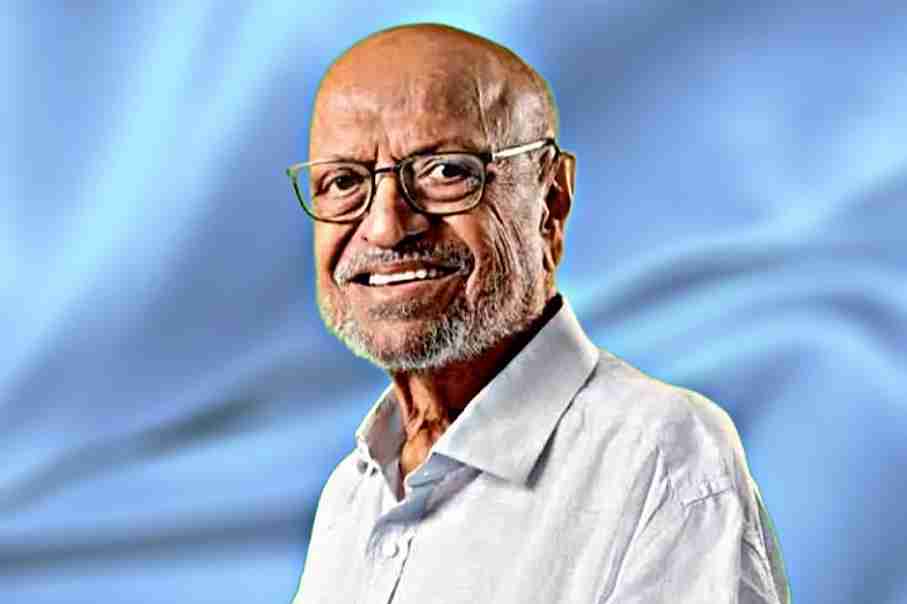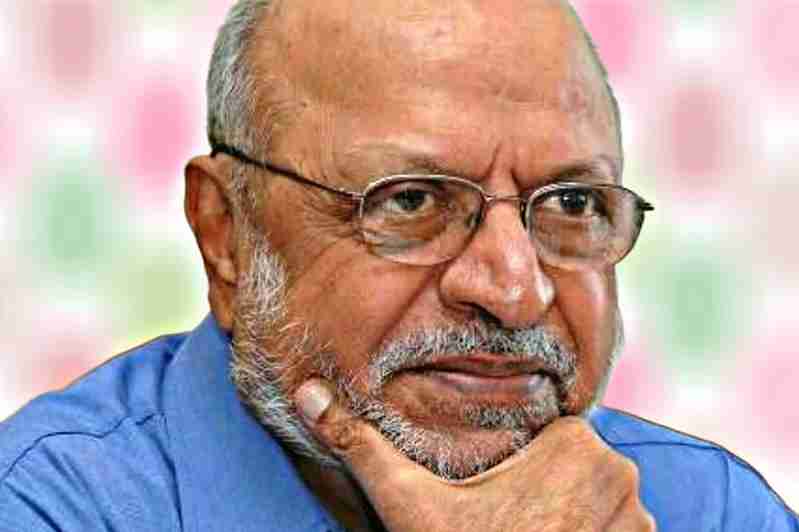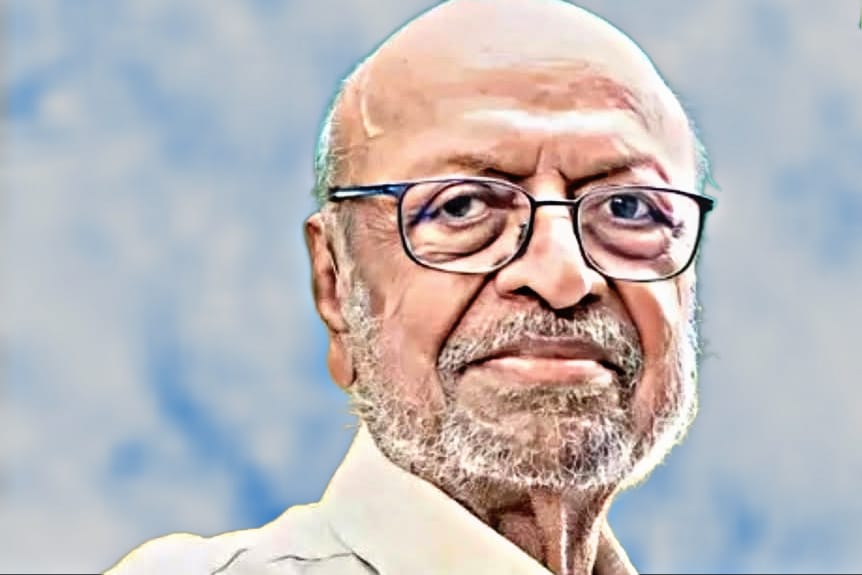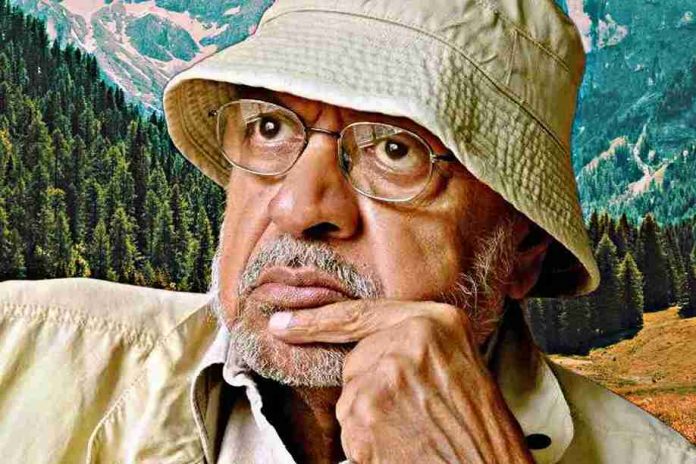Shyam Benegal, a name synonymous with Indian cinema’s golden age, stands as one of the most influential and respected filmmakers in the history of Indian cinema. Renowned for his pioneering work in parallel cinema, Shyam Benegal contributions have transcended mere filmmaking; he has shaped the narrative structure and thematic depth of modern Indian cinema. This article delves into his illustrious career, examining his unique filmmaking style, his impact on Indian culture, and his journey from the world of theatre to the silver screen.
Early Life and Education

Born on December 14, 1939, in the town of Azeemabad (now Patna, Bihar), Shyam Benegal was introduced to the world of arts at a young age. His family, with its deep roots in intellectual and cultural pursuits, played a significant role in shaping his worldview. Benegal attended the prestigious National Institute of Design (NID) in Ahmedabad, where he trained in graphic design and direction. His passion for storytelling was evident early on, as he started dabbling in theatre before venturing into the world of cinema.
Shyam Benegal love for theatre shaped his approach to filmmaking, where the emphasis was always on realism, character depth, and exploring social issues. His academic background and early exposure to art forms helped him develop a critical eye and a deeper understanding of visual storytelling, setting the stage for his later works in Indian cinema.
The Rise of Parallel Cinema
Parallel cinema, also known as the “New Indian Cinema,” emerged in the late 1950s and 1960s as a reaction to the commercialized, masala-driven films that dominated the mainstream Bollywood industry. Filmmakers like Satyajit Ray, Ritwik Ghatak, and Mrinal Sen laid the foundation for a new wave of cinema that was more realistic, socially conscious, and thematically rich. Shyam Benegal emerged as one of the torchbearers of this movement, with his unique approach to storytelling, which focused on the intricacies of human relationships, social issues, and the Indian ethos.
Shyam Benegal entry into the world of cinema came with his directorial debut, Ankur (1974). The film was a revolutionary step in Indian cinema, as it dealt with themes of caste, social inequality, and power dynamics in rural India. The story of a young man who becomes embroiled in a forbidden relationship with a low-caste woman captured the essence of Benegal’s filmmaking philosophy — focusing on the struggles of ordinary people against the backdrop of a deeply entrenched socio-political system.
Ankur was a huge critical success, catapulting Shyam Benegal into the limelight and establishing him as one of the foremost filmmakers in Indian cinema. It was a breakthrough film that marked the beginning of a career defined by a commitment to telling honest, thought-provoking stories about society, politics, and human nature.
Signature Style and Themes
Shyam Benegal’s filmmaking style is marked by a deep commitment to realism, nuanced character development, and an exploration of socio-political themes. Unlike the larger-than-life characters often found in Bollywood, Benegal’s films focus on grounded, relatable characters, often situated within specific cultural, social, or historical contexts. His films explore themes of caste, gender, class, and the tensions between tradition and modernity.
Shyam Benegal characters are not superheroes or idealized figures, but individuals navigating the complexities of a society fraught with contradictions. His narratives are often characterized by their slow pace, attention to detail, and a subtle layering of meaning. While mainstream cinema may often resort to spectacle and melodrama, Shyam Benegal work relies on the power of dialogue, introspection, and a careful examination of India’s socio-political landscape.
In his films, Shyam Benegal explores the transformation of India post-independence. Whether it’s the tension between rural traditions and urban aspirations, the clash of modernity with antiquated customs, or the silent struggles of marginalized communities, his works present a reflection of the evolving Indian society.
Shyam Benegal: Iconic Films and Milestones

Ankur (1974)
As mentioned earlier, Ankur marked the beginning of Benegal’s cinematic journey. The film was set in rural India and focused on the class disparities in a feudal system. The film’s raw and realistic portrayal of rural life earned Benegal widespread acclaim and won several awards. It also introduced Benegal’s signature style: the emphasis on simple, relatable characters and a focus on social issues.
Nishant (1975)
Nishant was another major success for Benegal, further solidifying his position as a leader of the parallel cinema movement. The film, set against the backdrop of rural India, deals with the power structures that dominate village life. The story revolves around a school teacher who attempts to defy a feudal lord’s oppressive rule, but his efforts are thwarted. Nishant is a poignant commentary on the intersection of caste, power, and gender, showcasing Benegal’s ability to draw attention to societal injustices through human conflict.
Bhumika (1977)
Bhumika, starring Smita Patil, is one of Benegal’s finest works. Based on the autobiography of a real-life actress, the film tells the story of Usha, a struggling actress, and her tumultuous relationships with men and the entertainment industry. Bhumika is a meditation on the role of women in the Indian cinema industry, addressing themes of exploitation, identity, and the pressures of fame. The film is celebrated for its sensitive portrayal of the protagonist’s inner life and its feminist undercurrents.
Manthan (1976)
Manthan was an exploration of rural India, focusing on the dairy farming cooperative movement led by the famous social activist Verghese Kurien. The film centers on the struggle of a cooperative to improve the lives of farmers and resist exploitation by middlemen. Based on true events, Manthan was both a social commentary and a tribute to the success of the White Revolution in India. The film not only dealt with themes of empowerment and collective action but also offered a deep critique of India’s agricultural policies.
Junoon (1978)
Set against the backdrop of the Indian Rebellion of 1857, Junoon was another of Benegal’s historical dramas. The film centers on the turbulent period of the British occupation and the rebellion’s impact on the lives of ordinary Indians. Junoon presents a compelling story of romance and betrayal set in the context of the struggle for independence, showcasing Benegal’s versatility in handling historical narratives.
Kalyug (1981)
Kalyug is a modern-day retelling of the Mahabharata, exploring the themes of power, greed, and familial conflict. Set against the backdrop of corporate warfare, the film delves into the ethical dilemmas faced by the protagonists as they navigate the corporate world. By reimagining the epic in a contemporary setting, Benegal brought a timeless narrative into the modern era, exploring how ancient conflicts continue to resonate in contemporary society.
Mandi (1983)
Mandi is another of Benegal’s works that focuses on the lives of women. The film is set in a brothel and portrays the lives of the women who work there. Mandi is a complex exploration of the intersection of gender, sexuality, and class, revealing the harsh realities faced by women in a patriarchal society. Benegal’s treatment of the subject was bold and progressive for its time, and it remains one of his most important films.
Samar (1998)
Samar is a film that focuses on the issue of corruption within the political system. It is set against the backdrop of contemporary Indian politics and features a strong narrative that critiques the hypocrisy and moral decay that plague the system. The film, though lesser-known than some of his other works, is a testament to Benegal’s continued relevance as a filmmaker.
Shyam Benegal Awards and Recognition

Over the years, Shyam Benegal has received numerous awards for his exceptional work. He has been honored with several National Film Awards, which are the highest accolades in Indian cinema. His films have been widely celebrated both in India and abroad, earning him a reputation as a filmmaker who can successfully blend artistry with social commentary.
Shyam Benegal films have also been part of various international film festivals, including Cannes and Berlin, where they have been critically lauded for their humanistic approach and their focus on issues that transcend regional boundaries. Shyam Benegal was awarded the prestigious Padma Bhushan, India’s third-highest civilian award, in recognition of his contribution to cinema.
Impact on Indian Cinema and Society
Shyam Benegal’s films have not only transformed Indian cinema but also contributed to shaping public discourse around critical social and political issues. As a filmmaker, he brought attention to the struggles of marginalized communities, the complexities of the caste system, and the gender dynamics in rural and urban India. His work often critiques the status quo, questioning the norms and structures that perpetuate inequality.
Shyam Benegal films have inspired a generation of filmmakers who followed in his footsteps. His commitment to creating socially relevant cinema that doesn’t shy away from controversy has influenced contemporary filmmakers like Anurag Kashyap, Ritesh Batra, and Zoya Akhtar, who share his focus on realistic narratives and character-driven storytelling.
Shyam Benegal Legacy
Shyam Benegal’s legacy as a filmmaker is immeasurable. His contribution to Indian cinema, particularly in the realm of parallel cinema, cannot be overstated. His films are not just cinematic experiences; they are reflections of the socio-political environment in which they were made. They serve as timeless commentaries on the struggles of ordinary people and the complexities of Indian society.
Through his unique vision, Shyam Benegal has helped elevate Indian cinema to global prominence, making it an essential part of the international cinematic landscape. His films continue to inspire filmmakers, scholars, and audiences alike, ensuring that his work remains relevant and influential for generations to come.
Shyam Benegal Passes Away at the Age of 90
Shyam Benegal passed away on the age of 90 on December 23 in Mumbaiassed away at the age of 90. His death marked the end of an era in Indian cinema, leaving a void that will be felt across the global film community. Throughout his illustrious career, Benegal’s contributions were instrumental in shaping the landscape of Indian cinema, with his films continuing to resonate deeply with audiences and filmmakers alike. A visionary whose stories transcended the boundaries of entertainment, Shyam Benegal legacy will live on in the timeless films he created, which explored human complexities, social issues, and the rich tapestry of Indian culture. His passing is a moment of great loss, but his work will continue to inspire generations, ensuring that his indelible impact on Indian cinema remains ever-relevant.
Conclusion
In a career spanning several decades, Shyam Benegal has carved a niche for himself in the world of Indian cinema as a filmmaker who speaks truth to power. His work has consistently pushed boundaries, tackling tough subjects with sensitivity and nuance. From Ankur to Mandi to Kalyug, his films have illuminated the darkest corners of Indian society, shedding light on issues that continue to resonate today.
As one of the key architects of parallel cinema, Shyam Benegal has created a body of work that is both critically acclaimed and socially relevant. His films are not just a reflection of India’s past but also a vision for its future — one that is more equitable, just, and conscious of its social responsibilities. Shyam Benegal contribution to Indian cinema is a legacy that will continue to inspire and influence filmmakers, artists, and storytellers for years to come.

